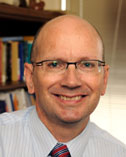
|
|
Director's Letter The idea that medicine should focus on the person and not the disease, and on prevention rather than cure, is not new. A quote attributed to both Hippocrates and William Osler notes, “It’s far more important to know what person has the disease than what disease the person has.” Hippocrates sounds downright modern in promoting the importance of diet and exercise over medical treatments (of course the discovery of penicillin was 2,000 years off). But if you want a picture of modern discontent with the medical establishment, simply examine the Goodreads list of “Books every doctor should read.” More than half the titles are variations on the idea that modern medicine, in particular the pharmaceutical companies and their allies, are making us less healthy. While discontent with modern medicine spans a wide spectrum, a certain set of themes recurs frequently:
VA established the Office of Patient Centered Care and Cultural Transformation (OPCC&CT) in January 2011, with a goal of developing and advancing Whole Health for Veterans. The Office title itself makes clear two central concepts about Whole Health: that it puts the patient at the center and that it requires a transformation in the culture of healthcare. Because patients were already incorporating non-traditional approaches such as acupuncture into their care, OPCC&CT also has become home to the growing program of complementary and integrative healthcare (CIH) for Veterans. Thanks to the foresight of Dr. Ranjana Banerjea in HSR&D, and the inspired leadership of Drs. Tracy Gaudet and Ben Kligler (the founding and current Director, respectively, of OPCC&CT) research has been an active partner in this transformational journey since the beginning. This has included partnerships with the Evidence Synthesis Program to develop evidence maps on a wide range of complementary therapies (search by “complementary”); a State of the Art conference and journal supplement on non-opioid therapies for pain; partnered evaluations of the Whole Health flagship sites through the QUERI program; support for the Pain Management Collaboratory with NIH and DoD; and multiple individual HSR&D research projects. These include studies of CIH interventions, such as mindfulness, massage, acupuncture, and yoga for conditions including pain and PTSD, and also provide more holistic patient-centered approaches like “goals of care” interventions in older Veterans. The growth of the Whole Health program owes a lot to the energy, passion, and vision of its leaders. Those leaders recognized the importance of building the scientific evidence to show how Whole Health will benefit Veterans and VA and how it can grow across a diverse healthcare system. As the articles in this issue make clear, the future for research on Whole Health, CIH, and their role in transforming VA care remains bright. David Atkins, MD, MPH, Director, HSR&D |
|
❮ Previous